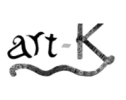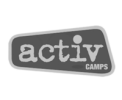NCFE CACHE Level 2 Diploma for the Early Years Practitioner
Key Details
-
Price: £2,120
-
Course Length: 12 months
-
Course Delivery: On Demand eLearning
-
Guided Learning Hours: 543 (including 250 work/placement hours)
-
Accredited by: NCFE Level 2
This qualification, NCFE CACHE Level 2 Diploma for Working in the Early Years Sector, approved by the Department for Education (DfE), is designed to meet the Level 2 Early Years Educator (EYE) criteria within the Early Years Foundation Stage (EYFS) statutory framework. Tailored for learners preparing to become early years educators, it equips them with the essential knowledge, skills, and understanding to work with children from birth to five years, and includes foundational knowledge of children aged five to seven years. Learners who achieve this qualification meet the DfE’s EYE criteria and are eligible to be counted within EYFS staff-to-child ratios at Level 2.
Designed for individuals who are working, this intensive programme provides guided online learning throughout the academic year and includes flexible mentoring and assessment arrangements to accommodate diverse schedules.
Graduates benefit from a wide range of career opportunities, such as positions in crèches, nurseries, reception classes in schools, and pre-school centres. With this qualification, learners can also progress to become independent practitioners, specialise in specific areas, or move into leadership and management roles within the sector.
This qualification can also be pursued as an apprenticeship, allowing learners to work within a placement while studying simultaneously.
Course Structure
This unit provides the learner with an introduction to the roles and responsibilities of the Early Years Practitioner.
This unit provides the knowledge, understanding and skills development to support the health and safety of children from birth to seven years.
This unit provides the knowledge, understanding and skills required to support equality, diversity and inclusive practice in Early Years Settings.
This unit provides the knowledge and understanding required to support the safeguarding, protection and welfare of children from birth to seven years.
This unit aims to develop knowledge and understanding of children’s development from birth to seven years of age.
This unit provides the learner with the knowledge, understanding and skills to support care routine for babies and young children. All care routines should be discussed with parents/carers to ensure consistency of care.
This unit provides the learner with the knowledge, understanding and skills to support the planning and delivery of activities, purposeful play opportunities and educational programmes.
This unit provides the learner with the knowledge, understanding and skills required to promote play in an Early Years Setting.
This unit provides the learner with the knowledge, understanding and skills to support well-being of babies and young children for healthy lifestyles.
This unit provides the learner with the knowledge, understanding and skills to support babies and young children to be physically active.
The aim of this unit is to extend practitioners’ knowledge, understanding and skills for best practice supporting children with Special Educational Needs and Disability (SEND) in the early years. This unit also meets Continuing Professional Development (CPD) requirements for SEND at Level 2.
This unit provides the knowledge, understanding and skills required to promote positive behaviour in Early Years Settings.
This unit provides the learner with the knowledge to understand how to work in partnership in the early years.
This unit provides the learner with the knowledge, understanding and skills required to support children during transition to school.
Further Details
Tuition fees for our NCFE CACHE Early Years Practitioner Level 2 Diploma
(Early Years Educator) are £2,120 which includes an up front £200 registration fee, payable upon acceptance of a place with us.
We also offer a monthly instalment plan: £200 registration fee followed by 12 monthly payments of £160.
Applicants must be at least 18 years old and able to engage in either paid or voluntary employment within a home environment or an early years setting. The total number of mandatory work placement hours is a minimum of 300 hours; however, it is recommended that learners aim for 250 hours where possible to enhance their practical experience. Note that to work as an Early Years Educator and be part of the staffing ratios it is necessary to hold either GCSEs or Functional Skills Level 2 in English. If you completed your studies in English abroad at the age of 16, you could apply for a statement of comparability at ECCTIS. However, if English was your secondary language, it is likely that you will be required to complete Functional Skills Level 2 or GCSE in English.
Assessment is the process of evaluating a learner’s skills, knowledge, and understanding against the established standards of the qualification. This qualification undergoes both internal assessment and external quality assurance.
Assessment is centred around the following:
- Portfolio of Evidence: Learners are required to compile a contextualised portfolio that includes comprehensive written evidence demonstrating their skills and knowledge in practice. This portfolio will be assessed by an assessor and is subject to external quality assurance by NCFE to ensure compliance with all standards.
The assessment of the skills-based criteria will utilise a variety of methods, including:
- Direct Observations: Learners will be directly observed in their work placements or employment settings, which is essential for demonstrating practical skills.
- Professional Discussions: Learners will engage in discussions that allow them to express their understanding and insights in a professional context.
- Reflective Accounts: Reflective accounts from learners will detail their experiences, providing insight into their personal development and learning journey.
- Expert Witness Testimonies: When direct observation isn’t suitable, testimonies from a lead practitioner may be used, accompanied by professional discussions to corroborate the evidence.
- Work Products: Learners can submit relevant documents such as policies, reports, and records, which can serve to enhance or support professional discussions, providing tangible proof of their skills and knowledge.
Completing this course has transformed my career. Not only did I gain a nationally recognised qualification, but I also gained the skills to make a real difference in children’s lives. The assessments were challenging, but the support from my assessor was invaluable. I’m now considering studying Level 5.
The flexibility of online learning was an absolute game-changer! I could juggle my job and family while studying, which made a huge difference. The assessor was amazing—really supportive, patient and genuinely wanting me to succeed.
Do you still have questions?












